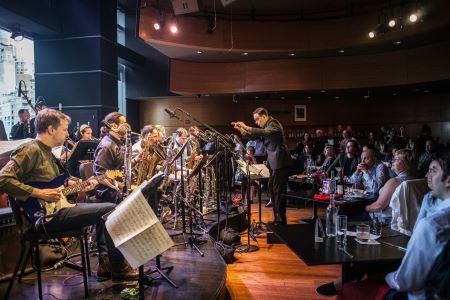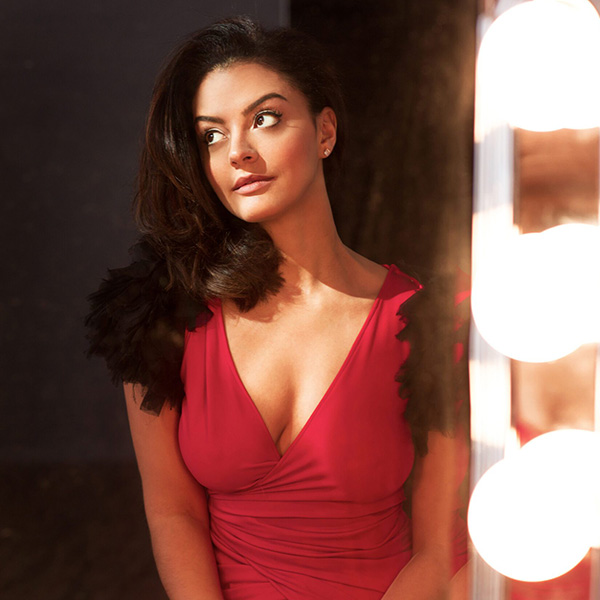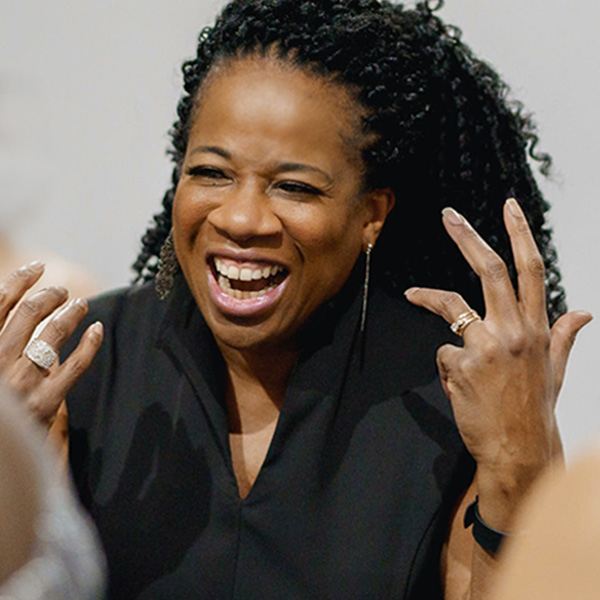When you think of musical genres that speak to this moment in time, big band jazz probably isn’t the first one that springs to mind.
Darcy James Argue, BMus’97, would welcome the opportunity to challenge those assumptions.
The jazz composer is the bandleader for Darcy James Argue’s Secret Society, an 18-piece ensemble. Their most recent album, Dynamic Maximum Tension, was a Grammy Award nominee this year for Best Large Jazz Ensemble Album. That’s nothing new. It marked the fourth time that they were finalists for a Grammy.
“With this album I’m able to tell a lot of different stories,” says Argue from his home in New York City. “They are primarily portraits of individuals who had a specific kind of vision of what the future could be and how they could mould it themselves.” Mae West, Alan Turing, and R. Buckminster Fuller are some of the figures that inspired the music on Dynamic Maximum Tension. The album landed on several best of the year lists for jazz recordings, including NPR, Slate and Stereogum.
For nearly 20 years, Argue has been using Secret Society to create music that is as rooted in the post-rock and post-hip hop era as the big band tradition pioneered by legends like Cab Calloway and Duke Ellington.
Argue’s music is conceptual and contemporary; in the words of NPR jazz critic Kevin Whitehead, “Argue runs a jazz big band, an institution from the last century, but imagines its sound as if big bands hadn’t faded away but stayed current.” The band’s last album, 2016’s Real Enemies, explored the history and influence of conspiracy theories.
Argue’s journey started in Vancouver, where he was born in 1975. “I had piano lessons from a young age,” he explains. “I had some really great teachers growing up, so I always had an interest.” His parents didn’t listen to much jazz, but he remembers one day finding a cassette of Count Basie and Duke Ellington’s 1961 album First Time! The Count Meets the Duke. “It was one of the first jazz albums I heard. It really created a lifelong love.”
When he started attending Handsworth Secondary, he decided to join the school’s jazz band. “It was a very good program run by a director named Bob Rebagliati, and it had a number of prominent graduates,” recalls Argue. He started out playing trumpet before moving on to piano. “That got me started doing the things you do as an aspiring young jazz musician like workshops,” he says. And it was one of those workshops, led by McGill music professor Kevin Dean, a jazz musician and composer, that convinced Argue to come to Montreal to continue his jazz studies at what is now known as the Schulich School of Music.
Writing for large ensembles was a required part of the McGill jazz program. “It was right before everyone adopted musical notation software, so we had to write out notes for all 18 musicians by hand. It’s a lot of work,” says Argue. “Not everyone was excited, but I was. I loved big band music. I was a huge fan of the Thad Jones/Mel Lewis Orchestra growing up. It was exciting to look under the hood [to see] how that music was made.”
“There aren’t a lot of careers now playing in a big band full time. It’s a labour of love, not a meal ticket.”
Darcy James Argue

Argue says he can understand why many of his peers didn’t share his enthusiasm for big band. “Most young jazz musicians are interested in being soloists and improvising and playing in a small group – they have more chance to step out front and have the spotlight on you. In a big band you might get one solo per concert,” he says. “It’s about being in a more supportive role and learning to play as an ensemble. There aren’t a lot of careers now playing in a big band full time. It’s a labour of love, not a meal ticket. Some people hear that sound and it’s inherently attractive to them.”
After McGill, Argue continued his studies at the New England Conservatory of Music under jazz composer Bob Brookmeyer. Then he moved to New York, where he founded the Secret Society in 2005, bringing together a host of talented musicians, including a former McGill classmate, trombonist Mike Fahie, BMus’98.
“I wanted us to be the house band at CBGB’s,” he says, referring to the legendary New York club that served as a launchpad for punk and new wave acts like the Ramones, Talking Heads and Patti Smith. “And that’s actually where we had our first gig.”
CBGB closed soon after and Argue and his band found refuge at the Bowery Poetry Club, which provided a venue not only for poets and spoken word artists, but also comedians and bands from across the musical spectrum. “It was a wide range,” says Argue. The regulars included other big band composers. “There was a lot of interchange between composers. It was always exciting to see ways people were using big band language and updating it for the 21st century.”
That’s exactly what Argue was trying to do with his own band.
“Secret Society has always been a product of all the music that I listen to,” he says. “I can’t help but naturally absorb all these influences – they come out in the writing. That means it’s going to draw on post-minimalist classical music or indie rock or Afro-Cuban music or all the other things I listen to. And it was an exciting time to be in New York. You could hear bands like TV on the Radio in Williamsburg, and I would see people there who were new music composers, classical composers – it felt like a very natural cross-genre, cross-pollinating scene.”
In a sense, Dynamic Maximum Tension reflects how Argue’s interests as a composer have evolved since Secret Society’s 2009 debut, Infernal Machines.“Some of the music is brand new [material] I finished a couple of weeks before the recording session, and some of it is music Secret Society has been performing at our live shows for quite some time,” he says. The positive response to Dynamic Maximum Tension has been gratifying. “I’ve heard from so many people about the album. It’s been really amazing. It’s difficult in this world as a big band leader to cut through the signal, so there’s nothing better as a composer than to know your music is resonating with people.”


